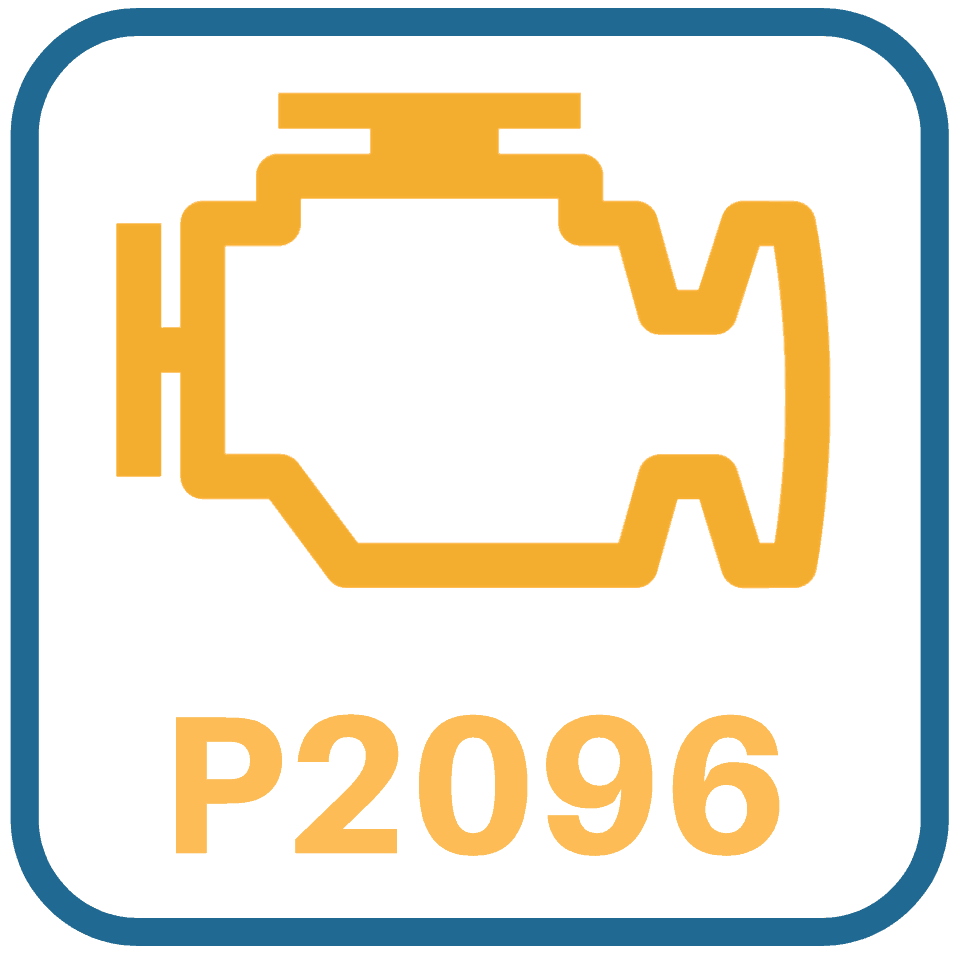P2096 is a generic OBD II code, which means that it has the same meaning for the Fiat Sedici as it would any other vehicle. It specifically indicates that your Sedici detected that it is running too lean (too much air for the amount of fuel present).
Bank 1 is the side of the engine with the first spark plug in the firing order. If your Sedici has a four cylinder engine, you don’t need to worry about this. It’s only for V6 and V8 engines that you need to be concerned about where bank 1 is.
P2096 Symptoms: Fiat Sedici
Typically, if your Sedici registered P2096 there will be noticeable symptoms. Here are some of the most common ones:
- Rough Running Engine– With your Sedici’s engine running a little too lean, you may notice that it struggles to idle properly. It may also misfire and have a hard time accelerating.
- Knocking– A loud knock is common with P2096.
- Red Catalytic Converter– If your catalytic converter is glowing red, that is a strong indication that it has gone bad.
- Check Engine Light– The reason why you are here. A wide range of problems can cause P2096. Make sure to check out the other codes.
- Bad Fuel Mileage– Fuel mileage will almost always suffer with this code present, since the air fuel mixture is off.
P2096 Causes + Diagnosis: Fiat Sedici
Here are the typical causes of P2096. A good code scanner will aid immensely in the diagnosis. Typically, this code will be accompanied by other codes that can help you narrow down exactly what is causing it.
Diagnosing P2096 by itself can be a challenge due to the amount of things that can go wrong and throw the code. If there are any other codes that are present, cross reference the common causes with these and see what common causes that they share in common.
Oxygen Sensor
A bad oxygen sensor is one of the most common reasons that you’ll see P2096. You’ll need to test the sensor and determine if it is bad or good. Here’s more on diagnosing a bad O2 sensor in your Sedici.
Catalytic Converter
A clogged catalytic converter is a common cause of P2096. A converter that is really bad will glow red and your Sedici will have a hard time accelerating. The reason that this happens is that it’s so clogged that it can no longer pass exhaust gas freely.
If this is the case, you’ll likely get P0420. Here’s more on diagnosing a bad catalytic converter.
Misfire
A misfire will cause P2096. A misfiring engine does not have to make a noticeable sputter sound. It can be subtle enough that you can’t feel it as you drive your Sedici. If this is what is causing the code, it’ll usually be accompanied by a misfire related trouble code.
Here are the most popular ones:
P0300– Random Multiple Misfire: Something is making all of the plugs misfire. This is harder to fix than just one random cylinder misfiring, but certainly not impossible.
P030X– Misfire in Cylinder X: If this is the case, it indicates that the misfire is in a specific cylinder. For example, P0304 is a misfire in the fourth cylinder in the firing order.
Low Fuel Pressure
Low fuel pressure can cause P2096. And, there are a lot of things that can cause low fuel pressure. Such as:
Exhaust Leak
An exhaust leak can cause the oxygen sensors to register that the mixture is too lean. Inspecting for an exhaust leak is pretty easy. Your Sedici will sound louder than normal somewhere in the exhaust, and it’s usually pretty obvious.
Vacuum Leak
A vacuum leak can let air into the combustion chamber that wasn’t supposed to be there. This leans out the mixture and can potentially throw the code in your Sedici.
Mass Airflow Sensor
If there is an issue with the mass airflow sensor, the PCM will not be able to properly control the air fuel mixture.
Conclusion: P2096 Fiat Sedici
The odds are that this code will be accompanied by a related trouble code. If it is not, start with the easier stuff:
- If it’s not accelerating right, but doesn’t seem to have a misfire it’s probably the catalytic converter. It should feel like it’s running out of wind as the speed increases
- If your Sedici is running rough (tachometer needle movement at idle) it could be an unregistered misfire.
- If you hear a whistling sound from under the hood, you probably have a vacuum leak.
- If there seem to be no other symptoms other than the check engine light, bad gas has been known to throw this code by itself. Make sure to use the octane rating that Fiat recommends.
- Use a code scanner to check how the oxygen sensor is performing during real world driving. If it is showing erratic readings, it may need to be replaced. Take a look at the wiring around it first and make sure that it is snug and undamaged.
Good luck diagnosing your Fiat Sedici. If you discover anything that could help the next visitor of this page, please leave a comment below. Thank you


